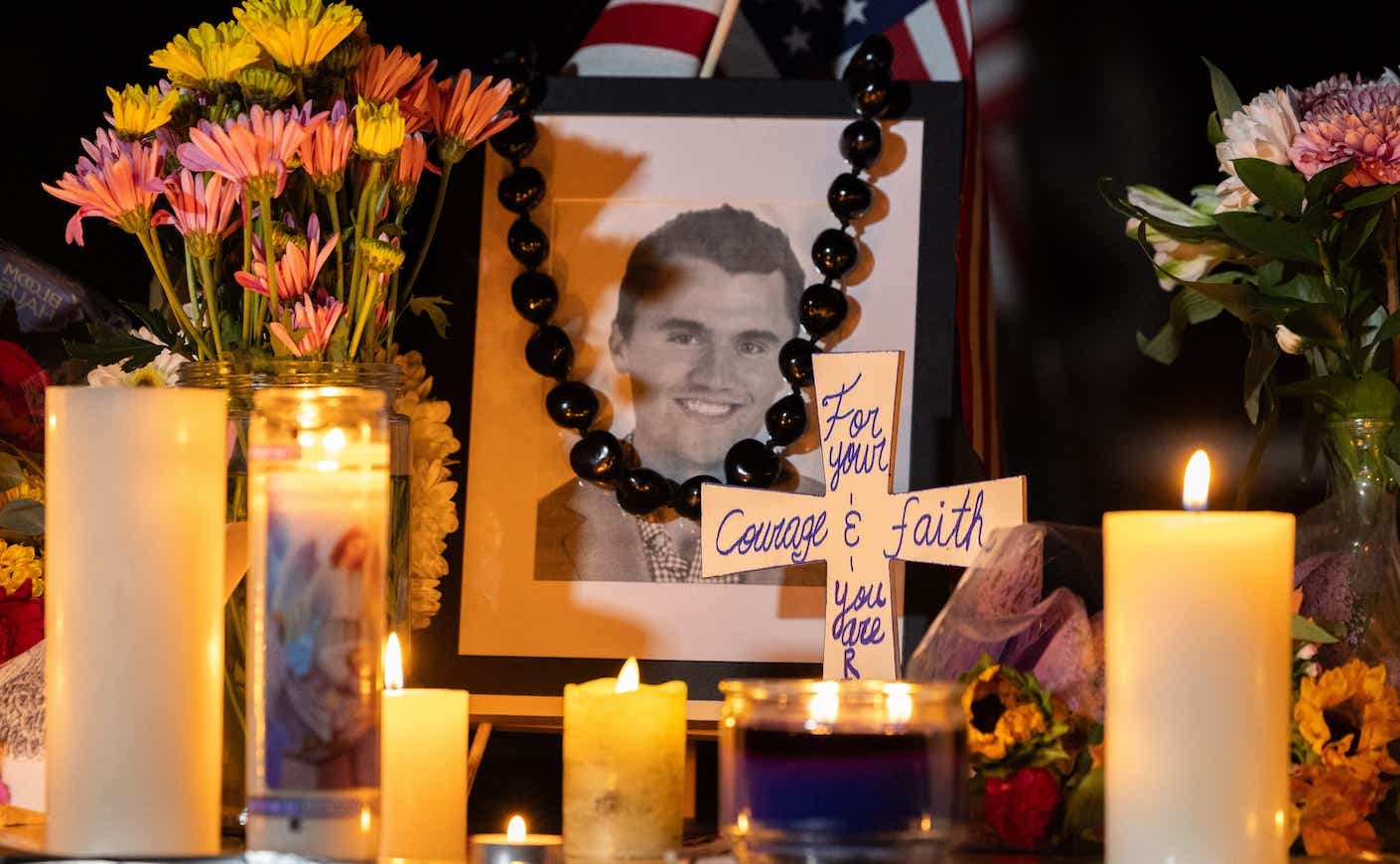Charlie Kirk's death and the subsequent news coverage have drawn polarized reactions. Some mourned; others positioned it against different tragedies, asking pointed questions like, "What about Palestine?"
Just weeks earlier, children were killed in a shooting at Annunciation Catholic School in Minneapolis, and in June, Minnesota Representative Melissa Hortman and her husband were shot to death in their home while Senator John Hoffman and his wife were gravely wounded. All of these recent events have received media attention, but only Kirk’s death, in comparison, has ignited a sustained national debate about worthiness of compassion.
That contrast reveals something unsettling at the core of our response to tragedy: We not only grieve, but we also rank grief. Tragedy is not measured on its own terms but against other suffering, as though grief were a zero-sum contest in which the validation of one pain must diminish another. Grief seems to have become a test of whose pain is worse.
The futility of measuring suffering
Viktor Frankl, a Holocaust survivor and psychiatrist, warned us against this very instinct. He wrote:
“A man’s suffering is similar to the behavior of a gas. If a certain quantity of gas is pumped into an empty chamber, it will fill the chamber completely and evenly, no matter how big the chamber. Thus, suffering completely fills the human soul and conscious mind, no matter whether the suffering is great or little. Therefore the ‘size’ of human suffering is absolutely relative.”
Frankl’s point is that suffering cannot be ranked. Each grief fills the life it touches. A child lost to gunfire. A political figure’s sudden death. Families in Gaza or Israel, Congo or Ukraine, Sudan or Yemen. Each experience is total, not partial.
I’m not saying that everything that happens in the world must weigh on us equally or that every loss will strike us in the same way. We are human, and some events will always hit closer to home. What matters is not that some sorrows move us more deeply, but that we resist the urge to build hierarchies of pain. It’s the ranking and comparing that strip us of our humanity.
Why we compare pain
One reason is that comparison is easier than compassion. Psychologist Paul Gilbert defines compassion as “a sensitivity to suffering in self and others with a commitment to try to alleviate and prevent it.” That is uncomfortable for many of us. It would mean acknowledging not just tragedies abroad but those unfolding in our own neighborhoods. It would mean changing how we live, vote, spend, and consume.
Kirk’s death, like so many public losses, is not only an occasion of mourning but also a stage for the performance of values.
Instead, we often flatten grief into a tool of belonging. Comparing signals where we stand politically, socially, and morally. To dismiss one tragedy in favor of another becomes shorthand for which camp we’re in. Kirk’s death, like so many public losses, is not only an occasion of mourning but also a stage for the performance of values.
Comparison also spares us the harder labor of compassion. Compassion asks for more than feeling. It asks for sacrifice. To say that every life matters equally is to invite obligations we would rather not face. It’s far easier to measure, to dismiss, to redirect than to carry the full weight of responsibility.
This is why hashtags and headlines often ring hollow. We mourn the children of Annunciation, but we are unwilling to pass common-sense gun regulations. We condemn child labor while buying the chocolate, the cobalt, the clothes. We speak of ending hunger while electing leaders who cut food programs. By allowing comparison to justify inaction, we keep compassion at the level of words, not deeds.
Frankl was right: Suffering always fills the space it enters. The only real choice we have is whether we make more space or close it off through comparison.
We can care about Charlie Kirk and the children of Annunciation Catholic School. We can care about Palestine, Israel, Yemen, Syria, Congo, Sudan, Ukraine, Uyghurs, Rohingya, Indigenous land, and hungry neighbors. True compassion is not about deciding which suffering matters more; it’s about acknowledging all suffering as worthy. It’s about refusing to measure, refusing to diminish, refusing to let compassion be a performance rather than a practice.
We won’t feel everything equally, and we’re not asked to. But we are asked to resist the reflex to rank suffering, because once we do, we surrender the very humanity that makes compassion possible.
Allison Carmen is chief financial officer, chief business operator, and general counsel of the Motherhood Center of New York. She’s an author, podcaster, TEDx speaker, business consultant, and frequent media guest. Allison's books include The Gift of Maybe: Offering Hope and Possibility in Uncertain Times, A Year Without Men: A Twelve Point Guide to Inspire and Empower Women, and Maybe Everything is Okay: A Parent's Guide to Less Stress and Worry (Tantor Media) Allison is a regular contributor to Salon, Ms., Psychology Today, Daily Beast, and more.









